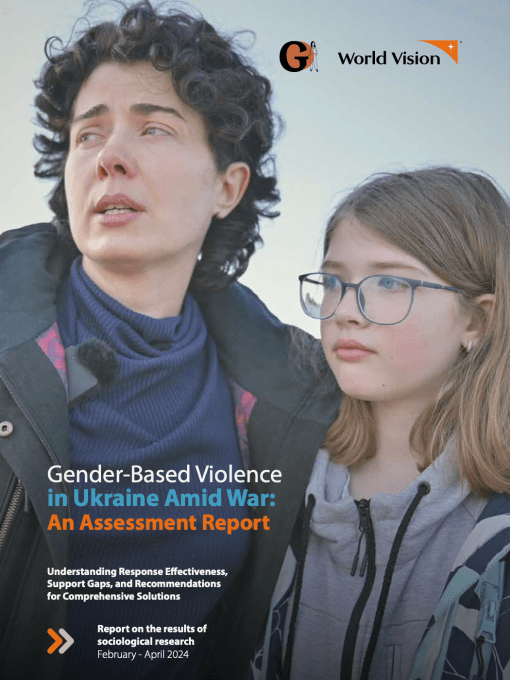Gender-Based Violence in Ukraine Amid War: An Assessment Report
Download
Ukraine is going through one of the most difficult periods in its history due to the war with Russia that has been going on since 2014 and the large-scale invasion in 2022. This has significantly increased the risks of various forms of violence for women, especially those in the war zones or those who were displaced. Economic instability exacerbates their vulnerability to domestic violence, and limited access to necessary services and support complicates the situation. In addition, the war has led to a redefinition of gender roles and demonstrated the need for society to adapt to new realities.
However, there is a serious problem with the lack of up-to-date data on gender-based violence (GBV), which makes it difficult to respond effectively and provide support to victims. There is also scant data on the level of awareness and prevalence of various forms of GBV among adults and adolescents in Ukraine. Therefore, observations of the social changes caused by the war emphasize the need for a national study on gender-based violence among women, men, girls and boys. In FebruaryMay 2024, World Vision and the NGO “Girls” jointly conducted a nationwide study of the understanding and prevalence of various forms of GBV and the effectiveness of the response.
The following methodology was used to achieve the objectives of the study:
Participants in focus group interviews (FGI) clearly associate GBV with physical acts such as hitting and beating, due to the commonly accepted perception of it in society and personal experiences. There has been an increase in attention to gender-based psychological violence, which is now being discussed more at the interpersonal level and in the media. This is attributed to the difficult psychological state of people in the third year of the war and to greater awareness of this problem.
Perceptions of GBV vary by age, region and experience of participants. Adolescents have a broader understanding of GBV than adults, while adults are more likely to associate it with physical acts. Women from different regions have different perceptions of GBV, with women from the south and east more likely to associate it with physical acts, while women from the west have a more comprehensive view. Women who have experienced abusive relationships have a deeper understanding of different forms of GBV and tend to view it in a holistic way.
Men understand GBV as a violation of human rights and as physical, psychological or social aggression directed at a person because of their gender. Some men see gender-based violence as a form of limiting freedom of choice or imposing stereotypical gender roles on men.



